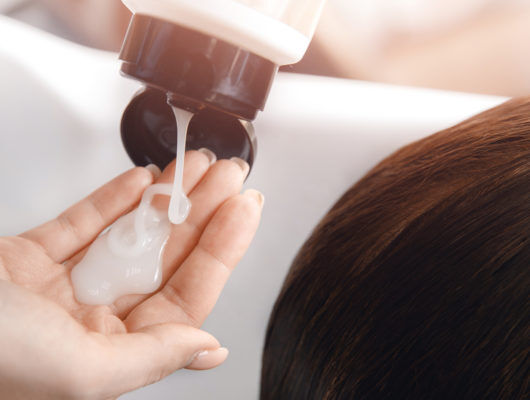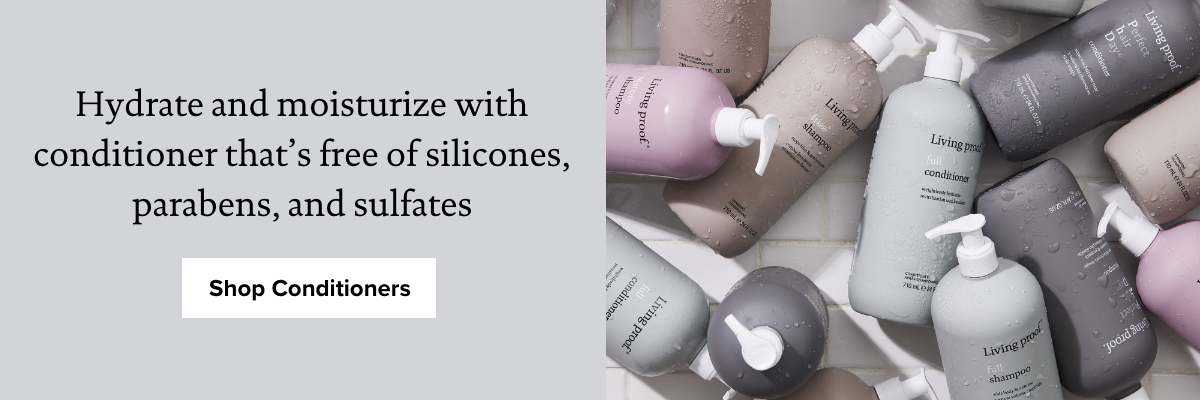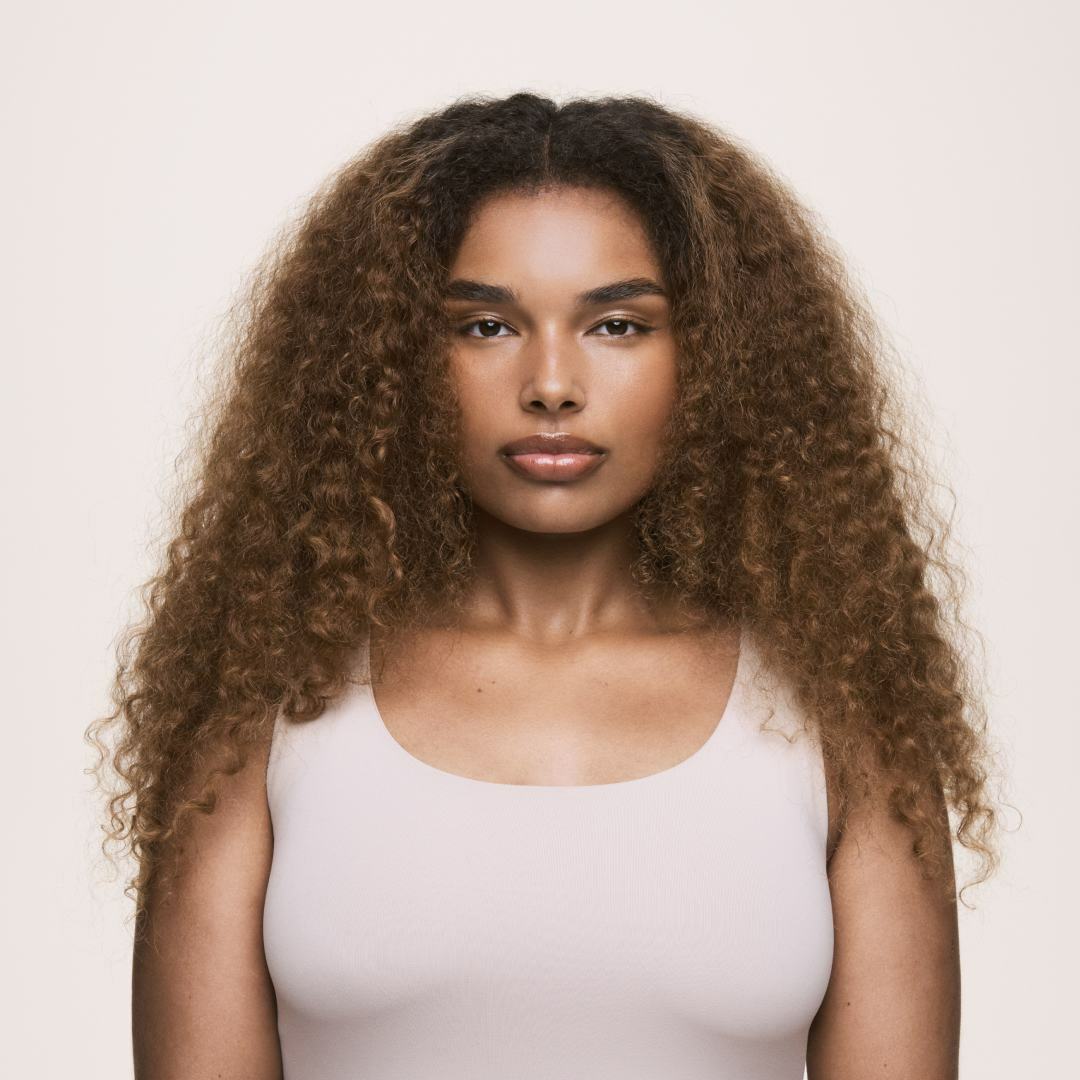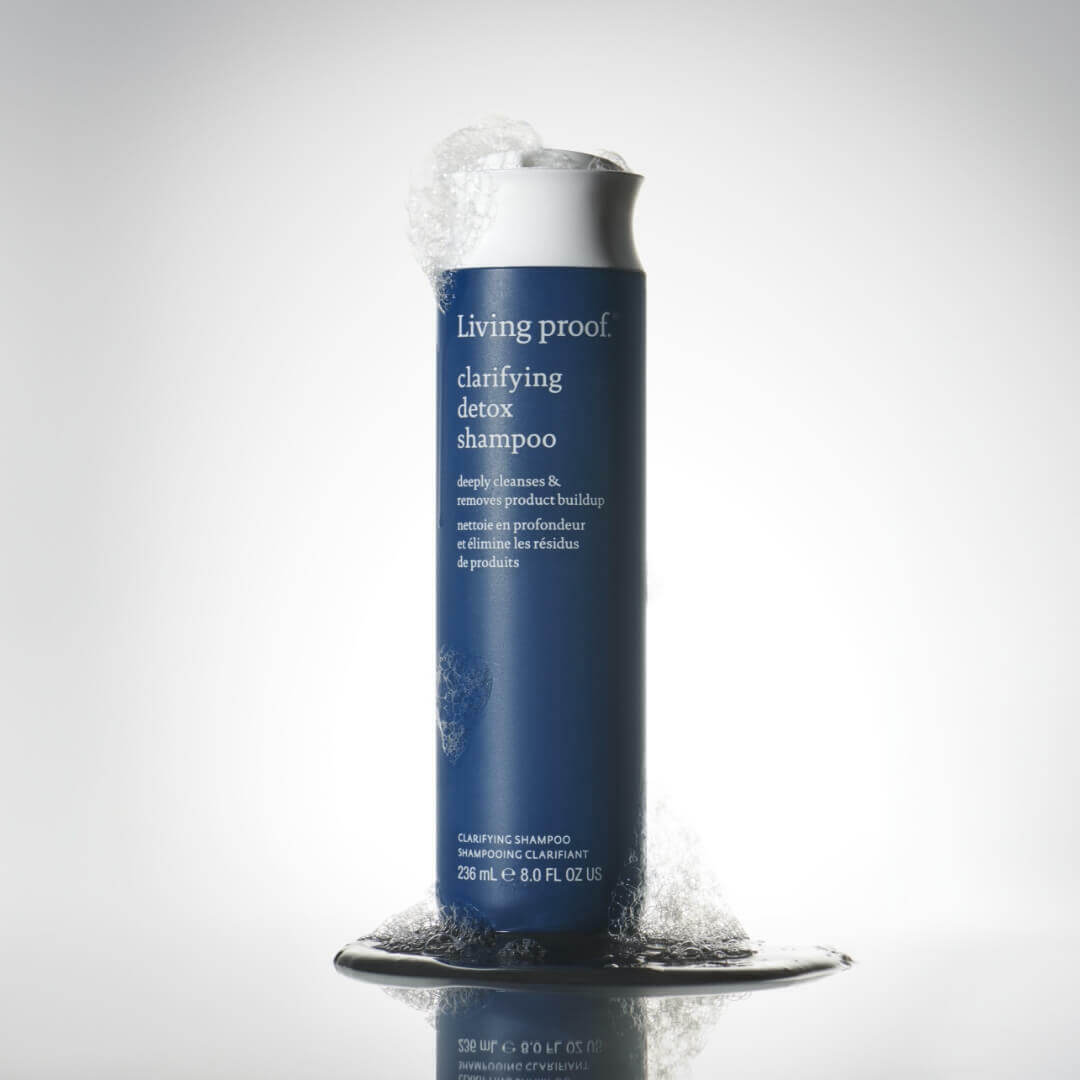
What Does Hair Conditioner Do?
Shampoo and conditioner are two peas in a pod. You probably know that shampoo cleanses your scalp, removing product buildup and excess hair oils. But what does conditioner do to your hair?
Overall, hair conditioner uses moisturizing ingredients to improve hair hydration, manageability, and strength. Curious to learn how? Let’s unlock your healthiest hair yet with our complete guide to conditioner and its many benefits.
What is Hair Conditioner?
After shampoo strips your hair’s natural oils, you need a product to replenish that moisture—enter moisturizing conditioner.
What is hair conditioner? In short, conditioners are a family of creamy products applied to wet hair to enrich its health, texture, and body. You’ll typically find apply-and-rinse types in most bathrooms, but other conditioners have grown popular for their enriching powers.
Whether you need daily moisture or intense heat damage repair, consider these conditioner types for your beauty cabinet:
- Rinse-out (or traditional) conditioner – Built for daily use, rinse-out conditioners are lighter cream formulas that provide hydration, softer texture, and less friction between each hair follicle. Most washers apply traditional conditioner after shampooing, rinsing it off after a couple minutes.
- Deep conditioner – To repair hair breakage (or get a moisture boost), deep conditioning provides intensive hydration. These rich formulas are usually applied to wet hair and sit for anywhere from I’ll 5-15 minutes, allowing for extra absorption.
- Leave-in conditioner – Wondering how to use leave in conditioner? As implied by the name, leave in conditioners are not to be rinsed out. These lightweight products help detangle and moisturize hair without fear of washing away its powers.
How Does Conditioner Work for Your Hair?
You can definitely feel the silky-smooth difference after applying a deep conditioner. But what’s going on behind the scenes? What does conditioner do?
Conditioners work through the power of cationic surfactants—a.k.a., ingredients with a positive electric charge. Since human hair has a negative charge, it attracts and bonds to the conditioner’s positive charge. This helps your hair soak up conditioner’s other nourishing ingredients like:
- Amino acids or hydrolyzed proteins
- Fatty alcohols
- Waxes
- Natural oils (jojoba, olive, grapeseed)
So, how does conditioner work its way into your hair? The answer lies in your hair’s cuticle structure.
Each hair strand is not solid. Hair strands are actually made of flaky layers, mostly formed by the cells of keratin protein. When healthy, the outer layer (or cuticle) lies flat to protect the delicate inner layer. When damaged, the outer layer raises and exposes the inner layer. Thanks to the cationic bonding process, conditioner envelops and seals damaged hair cuticles, leaving behind smooth and healthy hair.
The Benefits of Using Hair Conditioner
The question isn’t what does hair conditioner do, but what doesn’t hair conditioner do?
Conditioners are more than simple hydrators. To answer what is conditioner used for in full, here are a few common benefits for your tresses:
- Less dryness & frizz – Also known as “static electricity,” frizzy hair is a common issue. Raised hair cuticles (usually from dehydration or damage) absorb moisture more easily, expanding to create frizz. If you are wondering how to get rid of frizzy hair, hydrating conditioner ingredients like oils and waxes can envelop raised cuticles, sealing in hydration to prevent any unwanted frizz.
- Damage repair – From straighteners to tight ponytails, many habits can degenerate the precious bonds between hair’s keratin cells. Thankfully, conditioner can help reverse the damage. Studies suggest that haircare products with hydrolyzed keratin reform bonds between keratin cells, repairing cuticle breakdown.
- Damage prevention – Conditioners don’t just play damage control. They also stop damage in its tracks. Over time, conditioner’s moisturizing and sealing powers strengthen hair fibers to resist breakage. Research also shows specific ingredients like polymers and amino acids can block heat damage.,
- Better manageability – You know how just-shampooed hair can feel dry? When hair cuticles flake and raise up, the friction between strands makes detangling a nightmare. Conditioners can flatten hair cuticles with the power oils and waxes (at Living Proof, we prefer formulas that forgo synthetic silicones). Once smoothed down, hair fibers can soften and separate for effortless combing.
Is Conditioner Necessary for Hair?
For most people, conditioner is a staple of their grooming routine—and it should be! However, there are always a few exceptions to hair rules.
Depending on your hair type, you may need more or less of conditioner’s moisturizing powers. For example, conditioner could weigh down or deposit grease on very fine hair. On the other hand, coarse and tight coils (like 4C hair) might need richer moisture than a typical conditioner provides.
Regardless, there’s a conditioner to nourish nearly every hair texture. If regular conditioner doesn’t suit your locks, consider these tips for different hair types:
- Very fine hair – Rinse-out conditioners with low oil content
- Coarse coils – Leave-in conditioners or hair masks with high oil content
- Heat-damaged hair – Deep conditioners with keratin and proteins
- Color-treated hair – Sulfate-free conditioners with phytantriol and oils
- Thin or flat hair – Lightweight rinse-out conditioners with peptides and amino acids
Shining Through Your Strength with Living Proof
Whether you have bleached waves or springy curls, your hair deserves a conditioner that protects its strength and beauty. Not sure where to look? Living Proof has the best hair products online for you.
From the volumizing Full Conditioner to the rich Repair Leave-In Conditioner, we craft each formula to bring the best out of every hair type. Better yet, every conditioner is free of silicones, parabens, and formaldehyde—they contain only safe and nourishing ingredients. Give your hair its healthiest look with Living Proof’s conditioners. Need help finding a curated routine? Take our hair quiz today.
- Biotechnology Reports. Health improvement of human hair and their reshaping using recombinant keratin K31. https://linkinghub.elsevier.com/retrieve/pii/S2215017X18302017
- John Hopkins Medicine. Safe Hair Care Spares Hair, Johns Hopkins Dermatologists Report. https://www.hopkinsmedicine.org/news/media/releases/safe_hair_care_spares_hair_johns_hopkins_dermatologists_report
- Frontiers in Bioengineering and Biotechnology. Crystallin Fusion Proteins Improve the Thermal Properties of Hair. https://pubmed.ncbi.nlm.nih.gov/31709253/
- Indian Journal of Cosmetology. Shampoo and Conditioners: What a Dermatologist Should Know? https://www.ncbi.nlm.nih.gov/pmc/articles/PMC4458934/
- Journal of Cosmetic Science. The application of polymethylene waxes as conditioning agent in hair relaxers. https://pubmed.ncbi.nlm.nih.gov/15645095/
- Journal of Cosmetic Sciences. The effect of various cosmetic pretreatments on protecting hair from thermal damage by hot flat ironing. https://pubmed.ncbi.nlm.nih.gov/21635854/
- PeerJ. The structure of people’s hair. https://www.ncbi.nlm.nih.gov/pmc/articles/PMC4201279/
- ScienceLine. How does hair conditioner work? https://scienceline.org/2014/01/how-does-hair-conditioner-work/




.png)